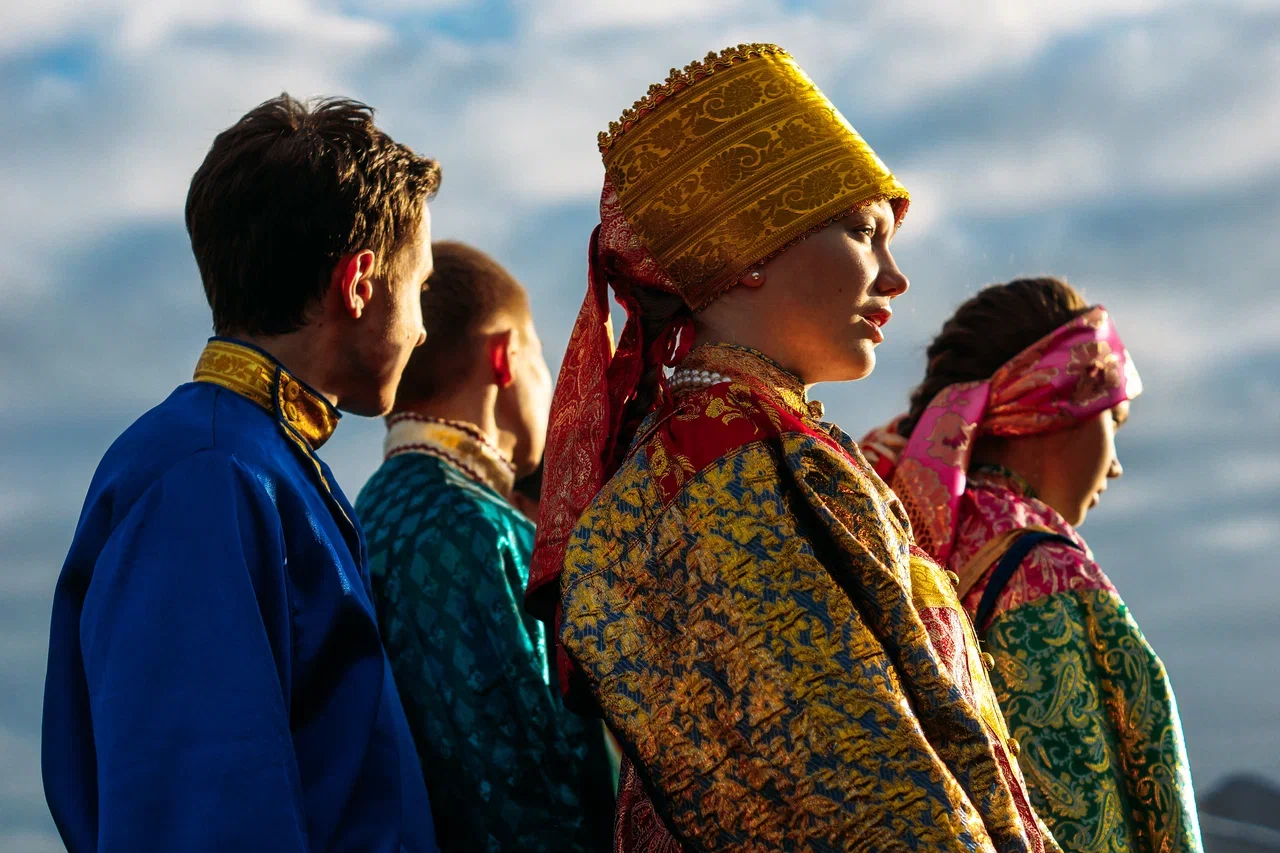
It is an authentic fragment of ancient Russia, to which the land of Komi miraculously became the place of preservation.
Ust-Tsilma's Gorka
The main facts about Gorka
In the Komi Republic, there are two primordially folk holidays that have come down to us through the centuries. The famous Ust-Tsilma’s Gorka is one of them. 2022 was the year when it was introduced to a record number of people: at the time, not only celebrated the Old Believers’ village its 480th anniversary, it was also chosen as the capital of the Silver ring of Russia interregional historical, cultural and tourist project. The inhabitants of Ust-Tsilma know well how attractive ancient Novgorod traditions are. They are always ready to have visitors: there are two hotels and several guest houses in the village; in addition, some local residents provide their estates as accommodation facilities. Unpretentious tourists can stay in tents on the banks of the Pechora.
Gorka is unique as one of the few spring and summer ritual holidays that were celebrated even in the Soviet era and have survived to our days in their original form. In Ust-Tsilma, they say that the year when Gorka will not take place will be the last in the history of the world, and this explains everything.
"The roots of Gorka go back to pagan times when people worshiped the sun by gathering on hills outside the village for performing ritual songs and dances. Until the beginning of the 20th century, such meetings also served as brides’ fairs and thus were associated with the cult of fertility. Gorka is some kind of an element. Its rituals cannot be scheduled to the minute, and none of them can be repeated or replaced. During the ceremony, its participants may leave it and join it again, but this never affects the sequence of the songs and figures of the round dance, which is always constant.
Before going to the celebrations, its participants perform the ritual of dressing. The traditional Ust-Tsilma costume, each element of which has a sacred meaning, is included in the register of objects of intangible heritage. Among the villagers, there is a tradition of passing down festive outfits from generation to generation."
The Gorka folklore includes 17 songs belonging to the classical Russian round dance repertoire.